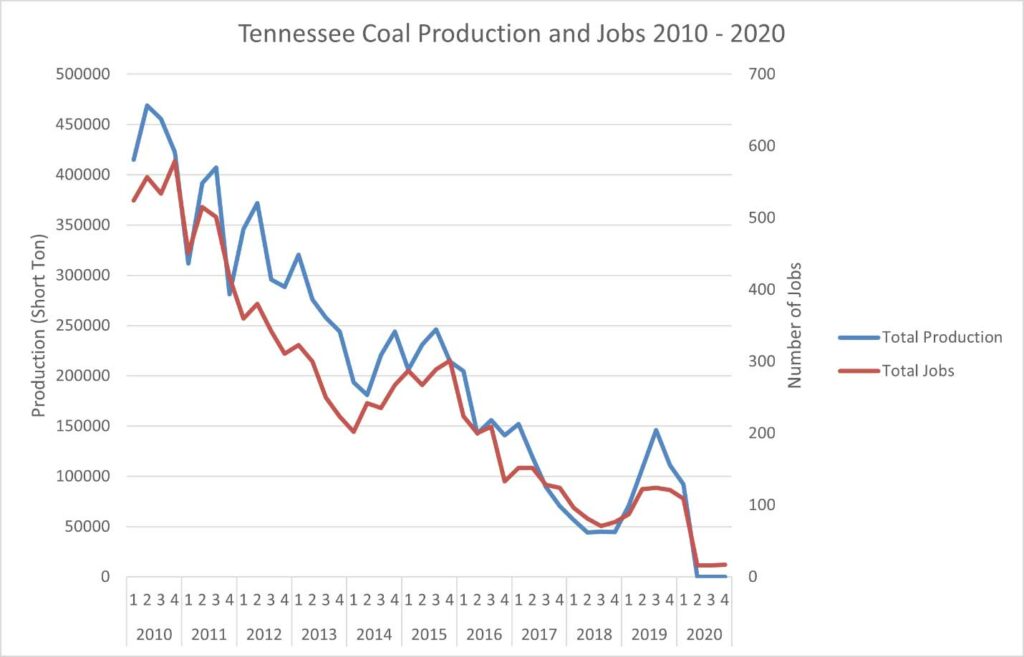Photo: Coal Pile at the Baldwin Plant in Anderson County, TN
Photo Credit: Appalachian Voices / Flickr
Published March 19, 2021
By Kathy Hawes [contributor to The Tennessee Conservative] –
In 1984, Tennessee relinquished its authority to regulate coal mining to the federal government after the state administration deemed the program unmanageable.
The coal industry wants Tennessee to take it back.
Lobbyists achieved a victory in 2018 when state legislators passed the Primacy and Reclamation Act of Tennessee, which directed the State to begin the process of reassuming regulatory primacy from the federal Office of Surface Mining, Reclamation, and Enforcement (OSMRE).
Tennessee’s Department of Environment and Conservation (TDEC) was the agency charged with implementation, and it proceeded to apply for federal funding to do just that.
Two million dollars later, TDEC reported that to resolve a conflict within its application to OSMRE, new legislation would need to be passed to amend the original Act.
In addition, the program cost was estimated to exceed revenue by $60k the first year and $871k each year thereafter.
That is quite a price tag to attempt to stimulate an industry that has naturally declined in both production and jobs by over 80% in the last decade.

In 2010, the coal industry supported nearly 550 Tennessee jobs each quarter. In 2018, that number dropped below 100.
New and continuing permit applications have dropped precipitously in recent years as demand for Tennessee’s particular type of coal has dwindled. The market price of Tennessee coal and the level of production are driven by external market factors rather than any perceived regulatory burdens.
Meanwhile, on the horizon is a regional crisis of inadequate funding to address cleanup and reclamation of old mines, which worsens every time a mining company declares bankruptcy. If TDEC assumes primacy, Tennessee taxpayers will be on the hook for significant future reclamation costs.
The obvious solution to the primacy debacle is to repeal the 2018 Primacy and Reclamation Act. Quite opposite from the Act’s determined fiscal impact of “not significant,” coal oversight represents a surprisingly high expense to Tennessee taxpayers for scant benefits to a sharply declining industry.
Instead of recommending a repeal of the Primacy Act, however, it appears that Governor Lee has allocated FY21-22 budget dollars for TDEC to pursue the regulatory path and intends to increase that allocation next year. And both the State Senate and House have bills in their respective agricultural committees, each with a mining caption that could be amended at the last minute.
Until the Primacy Act is repealed, Tennessee taxpayers will be propping up an unnecessary program – to the tune of $2.5 million before 2025 – to benefit a shockingly small number of individuals.

About the Author:
Kathy Hawes is the Executive Director of the Tennessee Clean Water Network and Coordinator of the Mississippi River Collaborative



